May 12, 2023
With majors in biology and economics, Ryan Fodero ’23 aims to improve healthcare systems
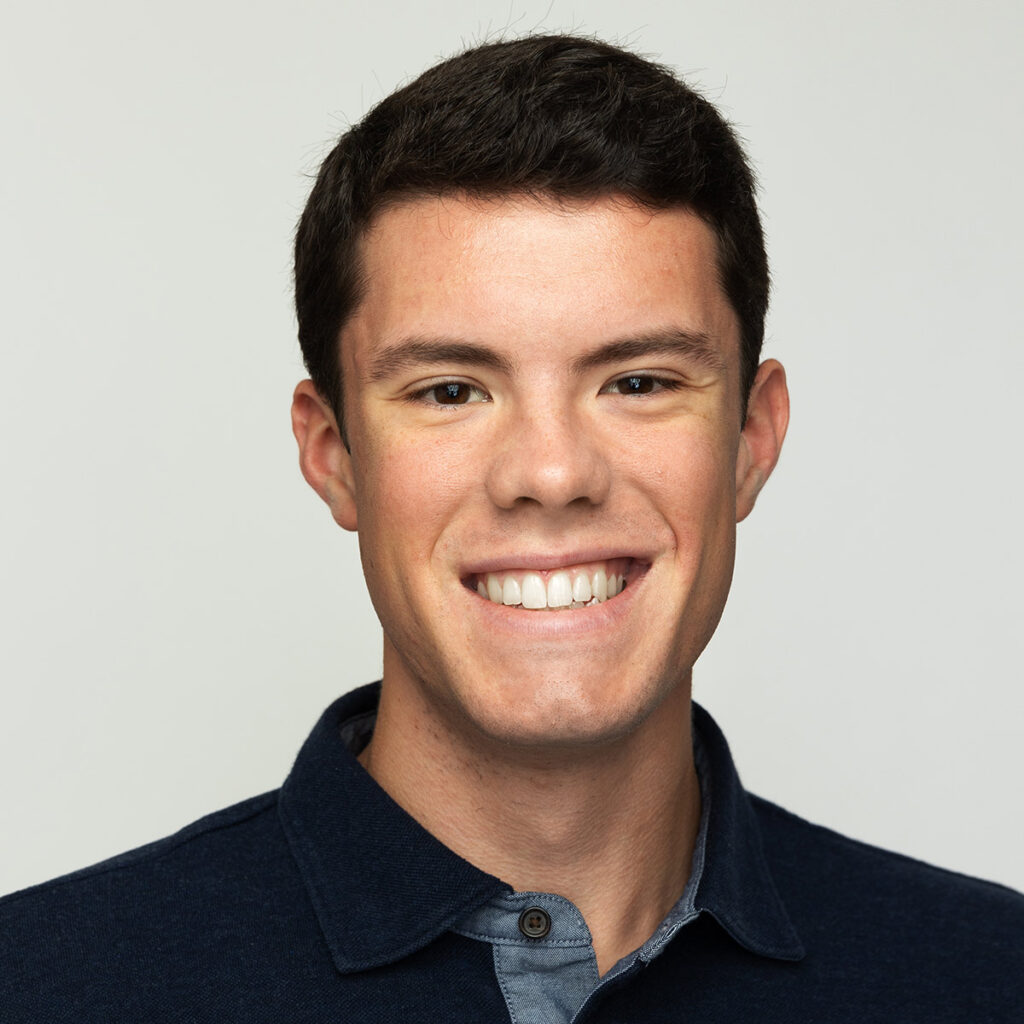
By Michael Hagan ’15, ’19G
Ryan Fodero ’23 arrived at Providence College as a biology major in the fall of 2019. He loved science and aspired to a career in medicine. Unwilling to abandon the interest in investments he developed in high school, he inquired about adding a second major in economics.
“Economics and biology? I don’t know that anybody’s ever done that,” Francis O’Brien, associate professor of economics, told him. The seemingly unlikely pairing of two disciplines, each involving rigorous quantitative study and specialized technical knowledge, would be demanding, but to Fodero, it felt like a natural fit.
When the COVID-19 pandemic presented governments and health care systems with unprecedented challenges beginning in the winter of 2020, connections between biological sciences and economics became clearer than ever.
“As the pandemic escalated, epidemiologists would make projections for community spread of COVID-19. These were quantitative evaluations of measurable variables. I thought — this is what we do in economics,” Fodero said.
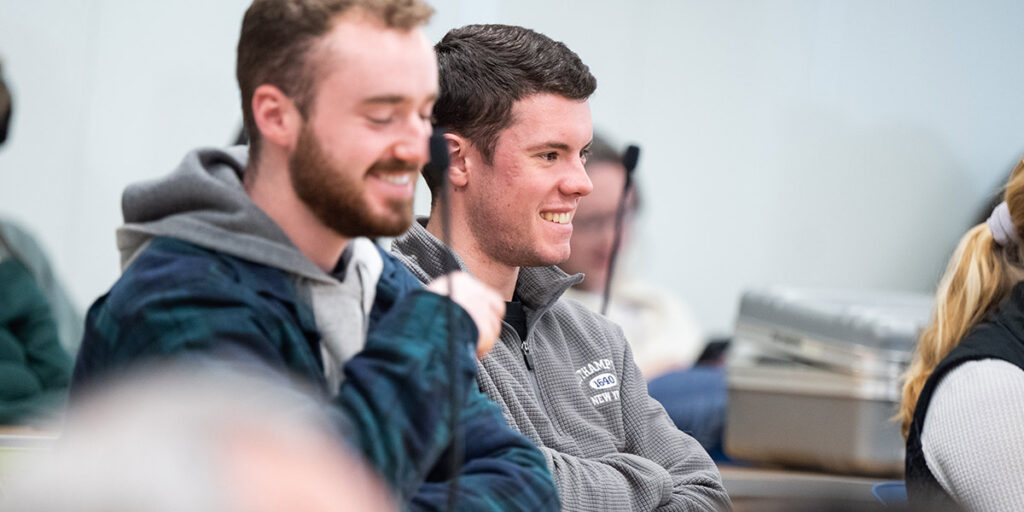
Fodero has been building economic and financial projection models since he was a student at Fordham Preparatory School in New York City, where he created a mock investment club in which he and other students used MarketWatch to simulate stock trading. He saved the money he made from summer jobs to make real investments.
When the pandemic struck in the spring semester of his first year, financial modeling and investments became Fodero’s biggest hobby.
“Projecting and investing was my COVID project,” he said.
The biggest question they had for me … was why I, a biology major, was interested in investing.
Ryan Fodero ’23
At the end of his first year, Fodero learned about the new Student Led Asset Management Program, known as SLAM, in the School of Business. Students of all majors can apply for membership in SLAM, but it most often attracts finance majors.
“The biggest question they had for me in the interview was why I, a biology major, was interested in investing,” Fodero said.
Fodero impressed the club’s student executive board with his investment experience, but also with his intersecting knowledge of the science and economics of healthcare. Once involved in SLAM, he was able to tell his student colleagues how “the transaortic valve replacement is going to have a huge impact on cardiology” and other very specific developments in healthcare. He identified developing companies beyond traditional healthcare giants and recommended investing in them for maximum growth.
Before long, Fodero was SLAM’s resident healthcare investment expert. In his sophomore year, he was a junior equity research analyst in healthcare for SLAM. By junior year, he was a senior analyst. In his senior year, he became chief investment officer and co-president of SLAM and oversaw the group’s entire portfolio.

“As a non-business major, I’ve had to pick up a lot that I didn’t learn in the classroom,” Fodero said. “But I’ve learned so much in application rather than in preparation for an exam, which helps me retain and build upon skills in fields like finance and accounting.”
One of Fodero’s favorite parts of SLAM is the opportunity to educate his peers. He taught others to build and present models and helped them develop their judgment and intuition for sound investment.
“I tell new members of SLAM, you’re not going to be perfect right away. Don’t expect your models to work every time, and don’t expect each stock to perform exactly how you think. Always start by looking into a company and understanding how it makes money before you even think about buying its stock,” Fodero said.
He spent his junior year applying “to just about every internship I could.” He was elated when he received an offer from PwC and interned last summer in healthcare management consulting.
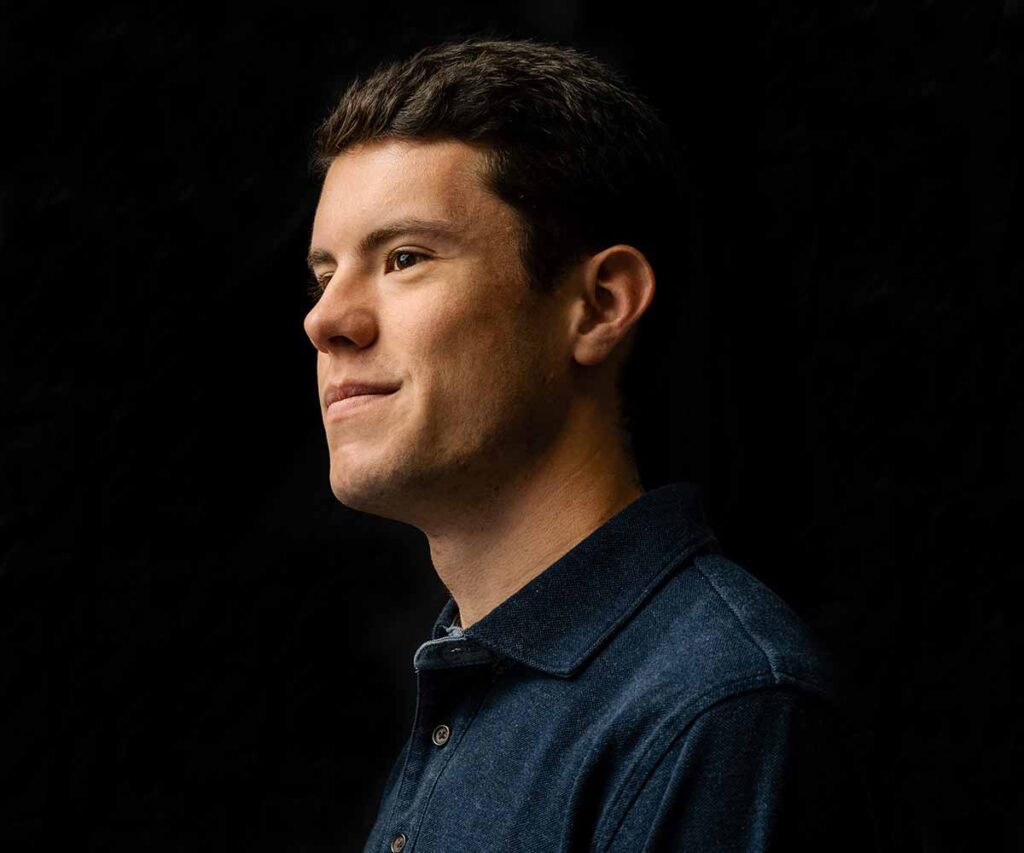
At PwC, Fodero and his team worked with a midwestern hospital system to optimize the delivery of care and return the system to profitability in the pandemic’s wake. This involved several trips to the Midwest, flying into Detroit Metro Airport.
Among the goals for the hospital system was to decrease the average length of hospitalization for patients. In hospital care, shorter stays mean more patient turnover and greater revenue. But more importantly, shorter and more efficient hospital stays are linked with healthier outcomes for patients.
“The American healthcare system is the most unnecessarily complicated healthcare system in the world. Care is expensive and inefficient. My goal as a consultant, and eventually, I hope, as a physician leader, is to make the healthcare industry more efficient so that care can be more affordable and expand services to underserved areas and communities,” Fodero said.
The imperative to ‘do no harm’ guides me in my career aspirations but also in my daily life. Do the everyday choices I make cause harm to myself or others? Do the words I say cause harm? If they do, I must change.
Ryan Fodero’23
Fodero will take the MCAT in August and intends to apply to medical schools after working at least two years in consulting. He embraces the core principle of the medical profession: “Do no harm.”
“The imperative to ‘do no harm’ guides me in my career aspirations but also in my daily life. Do the everyday choices I make cause harm to myself or others? Do the words I say cause harm? If they do, I must change,” he said.
For Fodero, the oath to do no harm taken by physicians is connected to the Christian and specifically Jesuit values impressed upon him in high school.
“The Jesuits have three major mottos: ‘For the greater glory of God,’ ‘Care for the person,’ and ‘Men and women for others,’” Fodero explained. “The combination of the three structured every aspect of our education, orienting us toward serving others and caring for ourselves … while promoting the human dignity of all.”
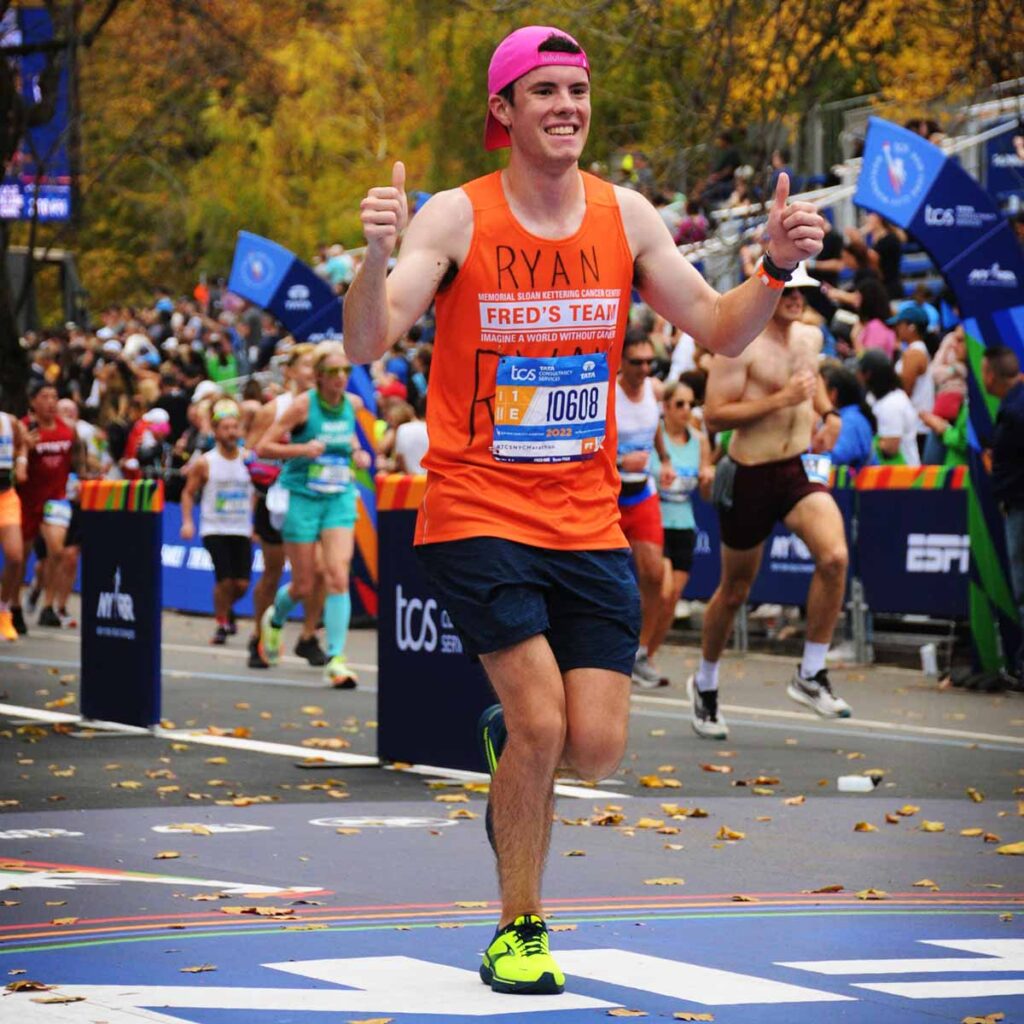
At the New York City Marathon in November 2022, Fodero exemplified that care and discipline, finishing the race and raising nearly $5,500 for breast cancer research. He ran with Fred’s Team, a Memorial Sloan Kettering Cancer Center charity.
Fodero is eager to return to PwC as a full-time employee upon graduation, but leaving Providence College is bittersweet.
“I’ll treasure the friends I’ve made. I’ll miss hanging out and watching sports with my 11 housemates. I’ll miss studying such a diverse array of academic subjects,” he said.
Going to Friars men’s basketball games at the Amica Mutual Pavilion was a highlight of college for Fodero and his friends. This season, they could be seen at every home game in their signature black-and-white striped overalls cheering on the Friars.
“Getting to an 8 o’clock game at 4 o’clock, freezing outside in our overalls waiting for gates to open — it was all worth it and I’ll never forget it,” he said.
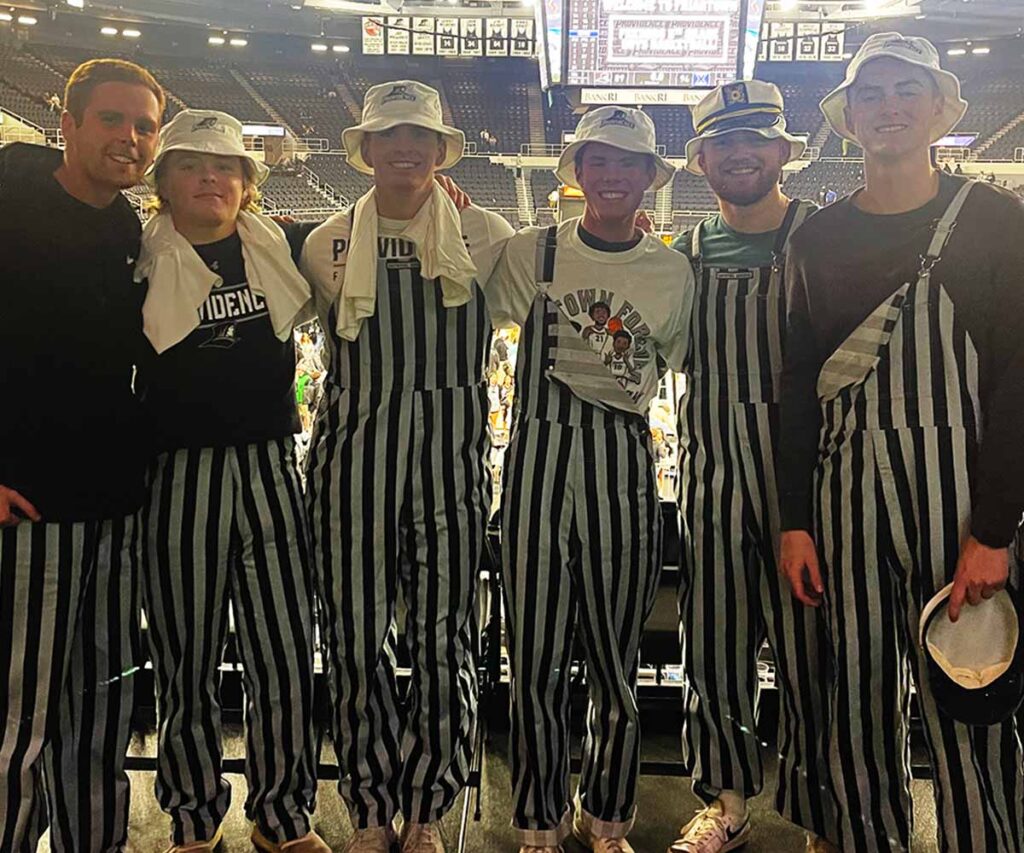
Fodero appreciates both the depth and breadth of his Providence College education. Smaller, more focused classes in the sciences and economics allowed him to dive into laboratory and independent research right away. The scope of his studies as a member of the Honors Program taught him to appreciate a range of disciplines and sources, even when courses like Honors Development of Western Civilization were extraordinarily demanding.
“A good friend of mine went to Cornell and was shocked that I was doing so much hands-on work as a first-year student. In his labs, he was cleaning petri dishes. In my labs, I cleaned my fair share of equipment, but I was also growing brains from stem cells. I got to do my own meaningful work,” Fodero said.
Fodero is grateful for many faculty, staff, and friends, but feels particularly indebted to Paul Scanlon, advisor for Student Led Asset Management and director of the finance lab; Charles Toth, Ph.D., former associate professor of biology; and economics professors Michael Mathes, Ph.D., and James Bailey, Ph.D., who fostered his interest in health economics.
“The opportunities at Providence College are incredible. I got to jump into research right away, which is harder to do at a larger university where you’re competing with grad students and post-docs. I’m thankful for the attention and care my professors have given me,” Fodero said.





